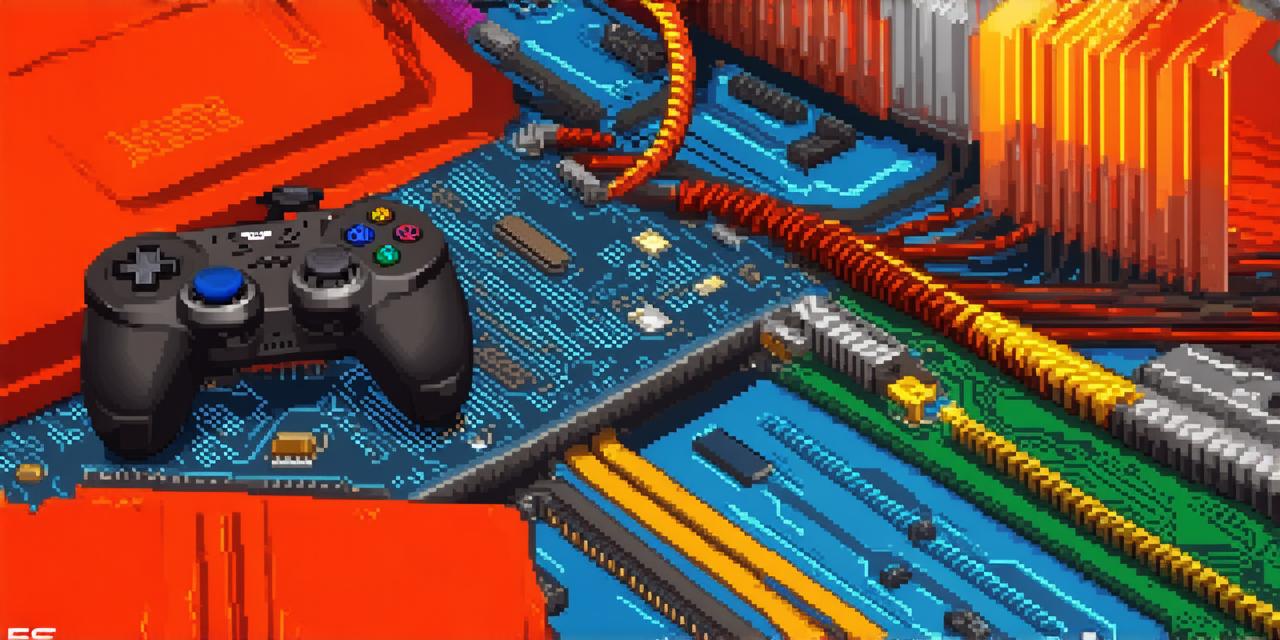Game development is a field that requires a unique blend of creativity, technical skills, and problem-solving abilities. It involves designing and creating interactive games that are both fun and engaging for players. While the process can be rewarding, it is also challenging in many ways.
The Challenges of Game Development
Technical Difficulties
One of the main challenges of game development is the technical side of things. Developing games requires a deep understanding of programming languages, graphics, sound, and other technical aspects of gaming. Game developers must be able to write clean and efficient code that will run smoothly on different platforms, including PCs, consoles, and mobile devices. Additionally, they need to create visually stunning graphics, add realistic sound effects, and ensure that the game’s performance is smooth and stable.
Creative Challenges
Another challenge that game developers face is the creative side of things. Designing a game that is both fun and engaging for players is no easy task. Developers must be able to come up with innovative ideas, create unique characters, and design challenging levels that will keep players engaged throughout the game. They also need to balance the difficulty of the game with its accessibility, ensuring that it’s not too hard or too easy for players to enjoy.
Time Management Challenges
Game development is a time-consuming process that requires a lot of planning and organization. Developers must be able to manage their time effectively to ensure that the project stays on schedule and within budget. This involves breaking down the development process into smaller tasks, prioritizing them based on importance, and delegating responsibilities to team members.
Budget Challenges
Budget is always a challenge in game development, especially for indie developers who have limited resources. Developers must be able to create high-quality games with limited budgets, which requires careful planning, efficient use of resources, and creative problem-solving skills.
Collaboration Challenges
Game development is a collaborative process that involves working with a team of artists, programmers, designers, and other professionals. Coordinating efforts across different departments can be challenging, especially when everyone has different priorities and timelines. Developers must be able to communicate effectively, delegate responsibilities, and manage conflicts within the team.
How to Overcome These Challenges
Technical Difficulties
One way to overcome technical difficulties is by investing in good tools and resources. This includes using reliable programming languages, graphics software, and other tools that are designed specifically for game development. Additionally, developers can seek out mentorship and training from experienced professionals who can provide guidance on best practices and troubleshooting techniques.
Creative Challenges
To overcome creative challenges, developers must be willing to take risks and try new things. They should also be open to feedback and willing to iterate based on player feedback and testing results. Additionally, brainstorming sessions and collaborative problem-solving can help developers come up with innovative ideas that they may not have considered otherwise.
Time Management Challenges
Effective time management is key to overcoming time management challenges in game development. Developers should create clear project timelines, break down tasks into smaller chunks, and prioritize them based on importance. They can also delegate responsibilities to team members and communicate regularly to ensure that everyone is on the same page.
Budget Challenges

To overcome budget challenges, developers must be creative with their resources and willing to make sacrifices where necessary. This includes finding cost-effective solutions for certain tasks, such as using open-source software or outsourcing some of the work. Developers can also seek out funding opportunities, such as grants or crowdfunding campaigns, to help supplement their budgets.
Collaboration Challenges
Collaboration challenges can be overcome by establishing clear communication channels and promoting transparency within the team. This includes regular check-ins, clear project goals and timelines, and a culture of openness and feedback. Developers should also be willing to listen to others’ perspectives and consider alternative solutions when necessary.
Case Studies: Real-Life Examples of Overcoming Challenges in Game Development
Minecraft
Minecraft is an excellent example of how game developers can overcome challenges in game development. Created by a single developer, Markus Persson, Minecraft was initially released as a simple block-building game that quickly gained popularity among players. However, as the game grew more complex, Persson faced numerous technical and creative challenges that threatened to derail the project.
To overcome these challenges, Persson sought out mentorship and training from experienced developers, invested in better tools and resources, and prioritized tasks based on importance. He also embraced community feedback and iterated based on player testing results, which helped him refine the game’s mechanics and balance its difficulty.
The Witcher 3: Wild Hunt
The Witcher 3: Wild Hunt is another example of how game developers can overcome challenges in game development. Created by Polish studio CD Projekt Red, the game was a massive undertaking that required a team of hundreds of developers to bring it to life. However, the team faced numerous technical and creative challenges during development, including issues with graphics, performance, and content creation.
To overcome these challenges, the team at CD Projekt Red invested in better tools and resources, sought out mentorship and training from experienced professionals, and established clear communication channels within the team. They also embraced community feedback and iterated based on player testing results, which helped them refine the game’s mechanics and balance its difficulty.
Conclusion
Game development is a challenging field that requires a unique blend of technical skills, creativity, and problem-solving abilities. While there are numerous challenges that developers face, there are also many strategies and techniques that they can use to overcome them. By investing in good tools and resources, seeking out mentorship and training, establishing clear communication channels, and embracing community feedback, game developers can create high-quality games that are both fun and engaging for players.



